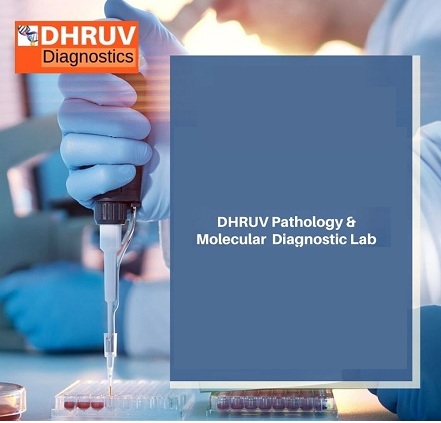Nagpur registers major spike, 67 more test +ve for COVID-19
| Date :07-Jul-2020 |
Principal Correspondent :
On Monday, Nagpur witnessed a major spike of coronavirus cases, when 67 persons tested positive. With these the cumulative number reached 1776. Out of 67 cases, 30 alone came positive in the laboratory of National Environmental Engineering Research Institute (NEERI). Out of the total positive cases detected on Monday, apart from NEERI laboratory, samples tested positive at virology laboratory of Indira Gandhi Government Medical College and Hospital (IGGMCH), All India Institute of Medical Sciences (AIIMS), Government Medical College and Hospital (GMCH), private laboratories. The address of 60-year-old man, who died on Sunday after testing positive for coronavirus was found wrong.
During admission, his residential address was mentioned as Telangkhedi. But after death while completing formality, the address was given as Khamla. The man had come to IGGMCH on Saturday evening in bad condition. Patient tested positive in night and around 2 am on Sunday died in ICU. On Monday, 8 patients recovered from IGGMCH. With these, the total recovered cases reached 1,053. The recovery of IGGMCH reached 548, Government Medical College and Hospital 377 while AIIMS figure stands at 101.
MLA Hostel Covid Care Centre begins Meanwhile as promised by Divisional Commissioner Dr Sanjeev Kumar, the Covid Care Centre has started functioning in MLA Hostel. This will reduce the burden on the tertiary care hospitals like IGGMCH, Government Medical College and Hospital (GMCH) and All India Institute of Medical Sciences (AIIMS). Now, the positive asymptomatic patients will be sent to the Covid Care Centre at MLA Hostel. On Monday, 18 asymptomatic positive patients from IGGMCH are sent to MLC Hostel Covid Care Centre.

Dhruv Pathology introduces antibody test, first in region
Principal Correspondent :
Dhruv Pathology and Molecular diagnostic laboratory at Ramdaspeth have introduced Antibody test to COVID-19. The test identifies if a person has had the novel coronavirus at some point in the past and has produced the antibodies to fight it. It is not a diagnostic test but is used for serosurveillance (estimates of antibody levels) to understand whether a person has encountered the infection in the recent past. The test kits and procedures have been approved by the Indian Council of Medical Research (ICMR) Dr Shailendra Mundhada and Dr Madhavi Deshmukh who are looking after the facilities at Dhruv Diagnostics are continuously trying to update the facilities at Dhruv laboratories.
Dr Mundhada while talking to The Hitavada said, “The antibody test check your blood by looking for antibodies, which may tell you if you had a past infection with the virus that causes COVID-19. Antibodies are proteins that help fight off infections and can provide protection against getting that disease again (immunity). Antibodies are disease specific. For example, measles antibodies will protect you from getting measles if you are exposed to it again, but they won’t protect you from getting mumps if you are exposed to mumps.” Except in instances in which viral testing is delayed, antibody tests should not be used to diagnose a current COVID-19 infection.
An antibody test may not show if you have a current COVID-19 infection because it can take 1–3 weeks after infection for your body to make antibodies. To see if one is currently infected, one needs a Viral Test. Viral tests identify the virus in samples from your respiratory system, such as a swab from the inside of your nose, added Dr Mundhada. Antibody tests for COVID-19 are available through healthcare providers and laboratories. If one tests positive or negative for COVID-19 on a viral or an antibody test, one still should take preventive measures to protect oneself and others. “We do not know yet if people who recover from COVID-19 can get infected again. Scientists are working to understand this,” pointed out Dr Mundhada. A positive test result shows one may have antibodies from an infection with the virus that causes COVID-19.
However, there is a chance a positive result means that one has antibodies from an infection with a virus from the same family of viruses (called coronaviruses), such as the one that causes the common cold. “Having antibodies to the virus that causes COVID-19 may provide protection from getting infected with the virus again. If it does, we do not know how much protection the antibodies may provide or how long this protection may last. Talk with your healthcare provider about your test result and the type of test you took to understand what your result means. Your provider may suggest you take a second type of antibody test to see if the first test was accurate. You should continue to protect yourself and others since you could get infected with the virus again,” explained Dr Mundhada.
“If you work in a job where you wear personal protective equipment (PPE), continue wearing PPE. You may test positive for antibodies even if you have never had symptoms of COVID-19. This can happen if you had an infection without symptoms, which is called an asymptomatic infection,” said Dr Mundhada. “If you test negative, you may not have ever had COVID-19. Talk with your healthcare provider about your test result and the type of test you took to understand what your result means. You could still have a current infection. The test may be negative because it typically takes 1–3 weeks after infection for your body to make antibodies.
It’s possible you could still get sick if you have been exposed to the virus recently. This means you could still spread the virus. Some people may take even longer to develop antibodies, and some people who are infected may not ever develop antibodies. If you get symptoms after the antibody test, you might need another test called a viral test? Regardless of whether you test positive or negative, the results do not confirm whether or not you are able to spread the virus that causes COVID-19. Until we know more, continue to take steps to protect yourself and other,” said Dr Mundhada.